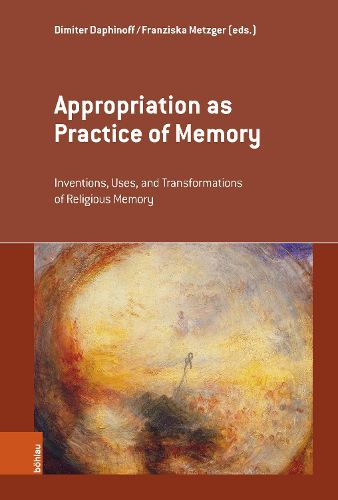This volume explores how narratives and iconographic codes in literature, art, music, material culture and social, political, and economic discourses were appropriated and thereby - sometimes radically - transformed by religious agents, and how religious narrations, discourses and iconographic practices were reimagined and used (up to radical deconstruction) in non-religious contexts as well as in different or transformed religious contexts. Religious appropriation is thereby conceived as practice of memory, drawing on reused - and creating transformed - narrative and visual spaces of imagination. The dimension of memory will contribute to a more differentiated typology of practices of appropriation, their forms, functions and functionalisation. Agency and power relations will be important factors in the individual contributions of this trans-disciplinary volume that links approaches from memory studies, religious history, literary studies, and art history.





